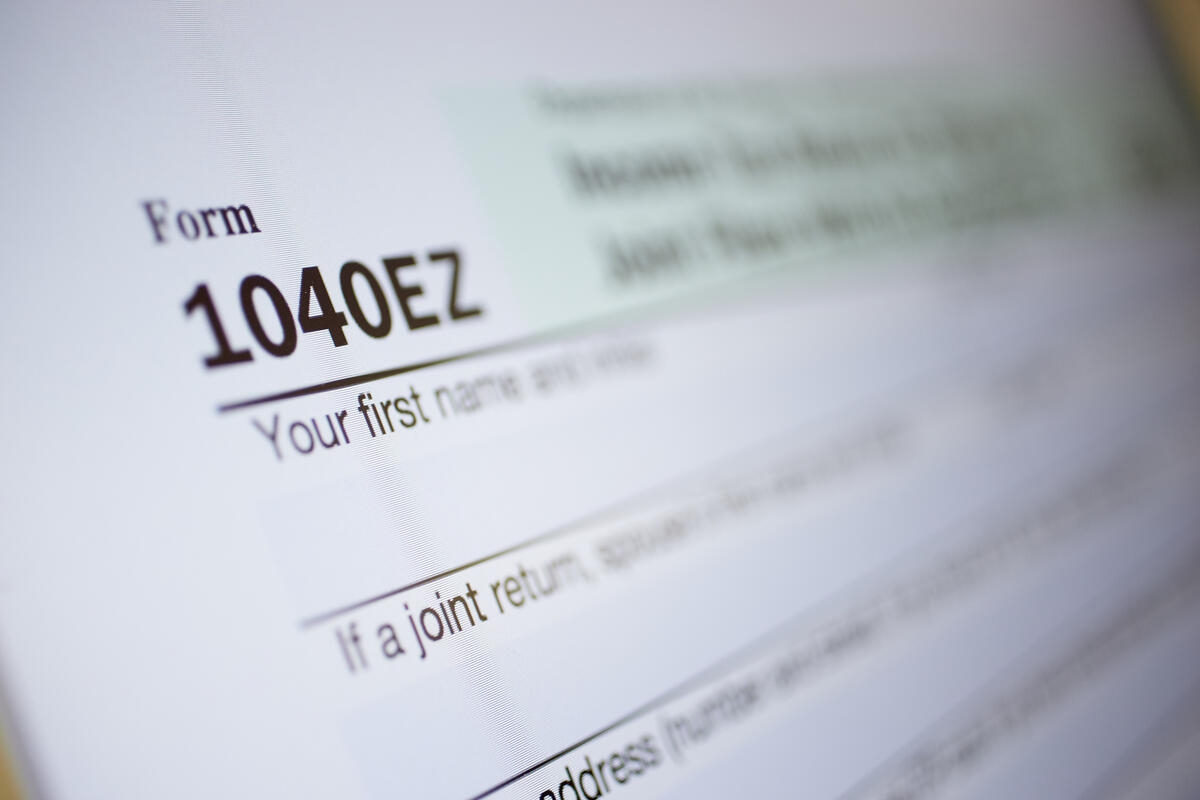Like Christmas, St. Patrick’s Day, and the Fourth of July, Tax Day in America is associated with the same calendar date each year.
But as everything around us has been impacted by the COVID-19 pandemic, so, too, has the deadline for filing federal income tax returns.
The deadline has been extended for three months to July 15, and Americans don’t have to do anything to qualify for the postponement. While that might seem like a relief, UNLV tax law expert Francine Lipman says taxpayers who are expecting a refund shouldn’t wait that long.
“People are strapped for money right now, and if there’s a tax refund waiting for you, file!” Lipman said.
A majority of Americans are also now waiting for the 2020 Recovery Rebate, which is being made available through the federal coronavirus relief bill, to ease some financial burdens due to loss of income and employment.
We caught up with Lipman — a lawyer and a certified public accountant — who provided several tips for how to navigate these uncertain financial times.
With the new federal tax deadline, why shouldn’t I wait to file my taxes?
If you are expecting a refund, file as soon as possible because you likely need the money now and you will not receive even one penny increase for delaying receiving your refund until July 15th. Procrastination does not pay! Moreover, you can use it to help your community. The empirical data is compelling that income tax refunds are spent locally, and as a result, there is a significant multiplier effect for communities, businesses and federal, state, and local governments through consumption, and taxes paid including job creation — or maybe given the current shutdown we can mitigate job losses.
What about state income taxes?
Not all states have extended their tax filing deadlines through July 15. Some states, like Nevada, do not have an individual income tax. Most Nevada residents with only Nevada-source income, for example, have no state income tax filing obligation.
For taxpayers with out-of-state source income, here is a helpful link regarding state tax filing deadlines and other issues.
Where should I go to file my taxes?
Unfortunately, most Volunteer Income Tax Assistance (VITA) sites are temporarily shuttered in Nevada and elsewhere (for updates visit https://www.nvfreetaxes.org). In Las Vegas, one VITA site (598 South Decatur Boulevard) remains open for drop off service. Clients can drop off their documents, and return at a later date to pick up, review, and sign the tax return.
FreeFile, however, which is available online only through the IRS website, is up and running for taxpayers with a household income of $69,000 or less, or FreeFileFillableForms for households with any amount of income. Both of these sites provide free preparation and electronic filing.
What if I’ve already filed my taxes and I owe the IRS money?
Federal income tax payments and self-employment tax payments for 2019 that were due on April 15 have been postponed until July 15. This includes first-quarter estimated tax payments and IRA contributions for 2019, but does not include refund claims for tax year 2016 that are due on April 15, 2020. The postponement does not apply to second-quarter estimated tax payments (due June 15). Any applicable interest and penalties on payments due on April 15 will begin to accrue on July 16 if not paid by July 15.
Where can I go for assistance if I have questions about my taxes, including my refund?
The IRS has temporarily shut down number of taxpayer assistance resources including its Taxpayer Assistance Centers nationwide. As a result, phone call on-hold wait times are even longer than usual during this tax season, which are usually very long in a normal year.
The IRS website has great, accessible information available at irs.gov, including a quick and easy way to determine when you will receive your refund. You can also access your tax transcripts on the IRS website. Another website that might be helpful is for the Taxpayer Advocate Service if you are suffering a financial hardship and need immediate tax relief.
Who qualifies for the 2020 Recovery Rebate Tax Credit?
All adults who have a valid Social Security number authorizing work and who are not claimed as a dependent on another's tax return (for 2020). One exception to this general rule is for married couple filing jointly where one of the spouses is a member of the Armed Forces, then only one of the spouses has to have a valid Social Security number that authorizes work.
How much will I receive?
Adults will receive $1,200 per qualifying individual ($2,400 for married filing jointly). Adults who have "qualifying children" will receive an additional $500 each, without limitation on the number of “qualifying children.”
A “qualifying child” for this purpose includes children, grandchildren, brothers, sisters, stepbrothers, stepsisters, nieces, and nephews who live with the adult as a member of their household in the U.S. for more than one-half of the year and who are under age 17 with a valid Social Security number authorizing work.
Adults (anyone 17 or older) who are claimed as a dependent on another's tax return will not receive a Recovery Rebate.
Even if you owe the IRS back tax liabilities, your recovery rebate will not be reduced by any outstanding debts other than past due child support. The Recovery Rebate is a refundable tax credit against 2020 federal income taxes, so it is not gross income/taxable income for 2020.
However, the 2020 recovery rebate amount is reduced by $5 for every $100 above the following adjusted gross income thresholds: $75,000 for single (or married filing separately) taxpayers, $150,000 for married filing jointly taxpayers, and $112,500 for head of household taxpayers. Therefore, households with filing statuses and adjusted gross income levels as follows will be phased out of their $1,200 (or $2,400) Recovery Rebate as follows:
- $99,000 single (or married filing separately),
- $198,000 married filing jointly, and
- $136,500 head of household
But households at these income levels may receive the additional “qualifying child” $500 (also subject to phase-out at $5 per $100 above these thresholds, or an additional $10,000 of income above these amounts for each “qualifying child” ($500/5 = $100 x $100 = $10,000 additional adjusted gross income).
As I tell my law students, math matters!
When will I receive my Recovery Rebate?
The federal government wants to push out these payments as soon as possible. Therefore, they plan to deposit monies into bank accounts per 2019 (or 2018) automatic refund deposit authorizations. The Secretary of the Treasury has indicated that these payments would start sometime around April 13. If they do not have this information from your tax filings, they will mail you a paper check to your last known address.
Paper checks are scheduled to be mailed out on or about early May and will take 20 weeks to distribute given the federal government’s check writing limitations and the significant underfunding of the IRS. It is also the middle of tax season and many, if not all, of the IRS’ face-to-face services have been suspended due to COVID-19. The law does not permit the U.S. Treasury to send out any advance Recovery Rebates after December 31, 2020.
What amount will I receive since my 2020 income and other information is not yet complete?
The US Treasury is going to estimate your Recovery Rebate amount based upon your last tax return on record (e.g., 2019 or if not then, 2018). Accordingly, your advance Recovery Rebate payment will be based upon the information from your 2019 (or 2018) tax return on file including how much your adjusted gross income was and how many "qualifying children" (as defined above) you claimed.
When you file your 2020 federal income tax return in 2021, you will reconcile the estimated Recovery Rebate received with your actual Recovery Rebate based upon your 2020 tax return information. If you should have received a higher Recovery Rebate because for example you had a child in 2020, or your 2020 adjusted gross income is lower than it was in 2019 (or 2018) (e.g., due to unemployment, but remember unemployment compensation is included in adjusted gross income), you will get any amount not previously received. If you received a greater Recovery Rebate based upon your 2019 (or 2018) information as compared to your 2020 actual information you do not have to pay any excess amount received back.
Adults who have not filed tax returns for 2018 or 2019, but who receive Social Security benefits will receive their Recovery Rebate based upon the information the Social Security Administration has on file.
What should I do now?
If your address has changed since you last filed a tax return you should submit an address change online with the US Postal Service and as soon as possible mail a change of address using Form 8822 to the IRS. Unfortunately, the IRS is not presently sorting mail so this address update is likely going to be significantly delayed. Alternatively, if you have not filed a 2019 income tax return and your address or bank account information has changed from your 2018 tax return, you might consider filing your 2019 federal income tax return electronically as soon as possible to update this information as well as any additional ‘qualifying children.’
If your 2019 adjusted gross income is higher compared to your 2018 adjusted gross income amount, you should consider how the phase-out will impact your estimated Recovery Rebate based upon your 2019 information as compared to your 2018 information.
What other individual tax provisions might be relevant to me as I try to navigate economic challenges now?
Congress has abated the 10% early withdrawal penalties on up to $100,000 withdrawn from certain retirement accounts for COVID-19 financial hardships. However, you will have to include any pre-tax amount withdrawn as income, but Congress will allow you to do this over three years instead of the year of withdrawal.
Seniors who are subject to “mandatory required minimum distributions” from certain retirement accounts because they are over 70.5 (or 72 under the recently passed Tax Cut and Jobs Act) will not be subject to penalties for not withdrawing those amounts for 2020. Therefore, seniors may consider not withdrawing monies from these retirement account.
Unemployment compensation is taxable income so consider electing to withhold federal income taxes on any unemployment payments.
Where do I go for updates on any and all things taxes?
Everything is dynamic and subject to change. Watch the IRS’ website at IRS.gov/coronavirus.
For hourly updates on Twitter follow @irsnews, @yourvoiceatIRS, @taxnotes, Kelly Phillips Erb of Forbes @taxgirl, and of course, Professor Francine J. Lipman @narfnampil.



